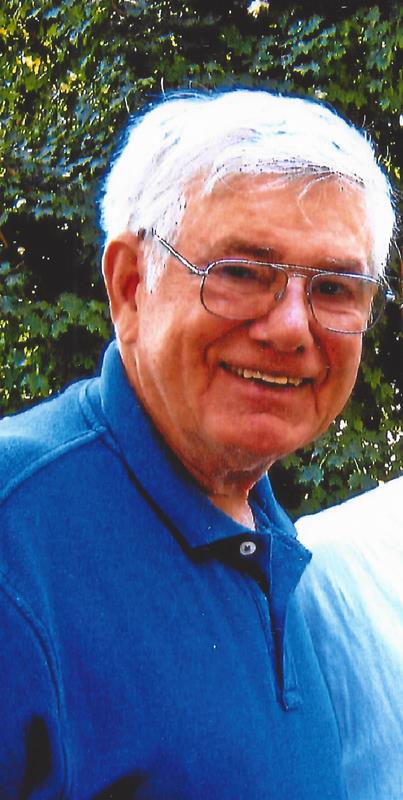 “Delta Chi was just coming back on campus after a rather long absence when it had been a strictly law fraternity on State Street and now was a social fraternity with chapters across the country, though it still had a few law-only chapters in the states and in Canada. When I pledged in 1954, it had only been back as a social fraternity at Michigan for two or three years with a house on Hill Street. It was rather small in membership, but the size of the house for 35 or more people was quite comfortable living.
“Delta Chi was just coming back on campus after a rather long absence when it had been a strictly law fraternity on State Street and now was a social fraternity with chapters across the country, though it still had a few law-only chapters in the states and in Canada. When I pledged in 1954, it had only been back as a social fraternity at Michigan for two or three years with a house on Hill Street. It was rather small in membership, but the size of the house for 35 or more people was quite comfortable living.
Chi Omega was around the corner from us on Washtenaw and joined us in preparation for Michigras parade. The floats were to represent the field of invention and we chose the automobile. Instead of making a float to be pulled by a car, we entered a truck and built our early American car around it producing an independent moving float. Norman Krecke ’60 from Dearborn, whose father was an administrator at Ford Motor Company, took charge of the construction and design of an early auto, allowing a driver inside the truck with an opening for a driver and others to see the road. And behold! This float won first by the judges and the crowds of people watching the floats go by.
While I was in grade school, Delta Chi was one of the four finalists in the chorus competition, performing at Hill Auditorium, singing an arrangement by music-major Russell Jack ’57 of “somewhere over the rainbow”.
My funniest incident was when Bill Thewalt ’58, Bill Pugh ’57 and I , after another Michigan win in football, decided to move down and over to the 50 yard line to watch the Michigan band post-game. As we walked past the many seats near the end zone and over to the 50 yard line, one of us fell over, breaking the bleacher seats below into two pieces. Once we were sure we weren’t hurt we picked up the two broken pieces of the bleachers and took them back to the Delta Chi house to be attached above the bar with the message of our 50 yard line seats.
I moved into the fraternity house beginning my sophomore year. Two of my roommates were Don Skinner ’56 and Bob Stakanas ’55, though I forget others that roomed with me. With time, especially during rush sessions, I began using an old high school nickname of “Willy”, which ater broke down to “Will” and stuck.
I still write to Don Shaffer ’53, Bill Thewalt ’58, Don Skinner ’56, Tom Michalski ’56 and Richard Bogg ’56.
I have a Bachelor’s degree in Political Science and a Master’s Degree in special education from Michigan. I also attended the University of Chicago Law School for one year and spent another year at Michigan in the Business Administration program.
From September 1960 to June 1995, I was a special education teacher and work/study consultant for the handicapped at Detroit Public Schools. About two years later in September 1962, I began working summers and part-time during the school year as a U.S. Customs inspector until retiring after 35 years as a teacher, at which time I worked full-time and overtime as a full-time U.S. Customs inspector until Christmas of 1999.
During my working life, I have lived in Detroit, Plymouth and now in retirement in Grass Valley California.
I was drafted into the Army in October 1954 and had training at Fort Leonard Wood in Missouri and Fort Gordon in Augusta, Georgia. I was then assigned after my high speed radio courses to Fort Louis, Washington before transfer to Mainz, Germany which lasted for one year and 11 months. I got out to go to the University of Chicago Law school.
I was married to my wife, Cindy, on March 25, 1960. We had two sons; Bill Howard, who graduated from the U. of Michigan in computer science and has a son, Alexander, now in junior high school in Palo Alto; and Jim, who graduated from Northwestern University with a Bachelor’s degree in math and English and is teaching school in Del Paso Hts., California. Jim’s son, James, is a student at the U. of California, Santa Cruz in his third college year.
My main avocation is bird watching and care. I belong to the Audubon, Sierra Club and Wild Life Rehabilitation and Release. I pick up and transport injured birds to a center of rehabilitation and release when and if they can still provide and defend for themselves in the wild. After 12 years of leading bird walks, I have stopped because of memory loss. Though I now have an arthritic left knee, I bird walk on my own. My doctor says I’m still quite healthy for my age.
I also have time to keep up on political and historical affairs. My biggest successes are saving birds. I do still lose my temper too much. My advice to others is to do good work and never be completely satisfied. Always take good care of your wife, who is usually always right.”

